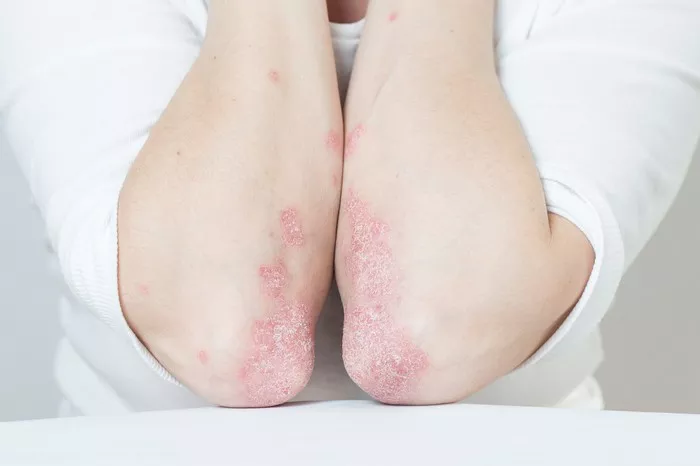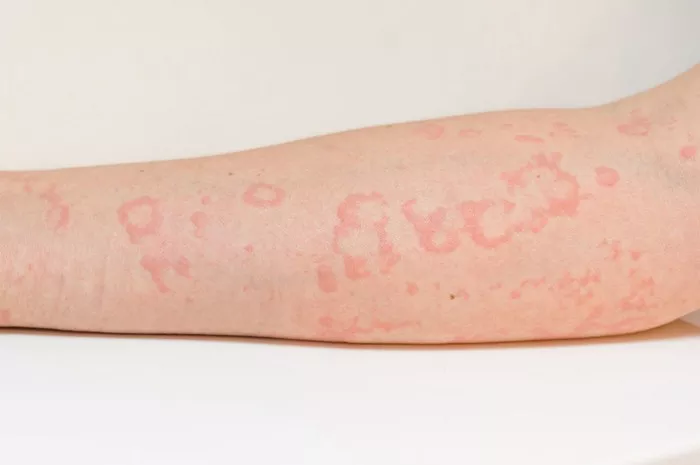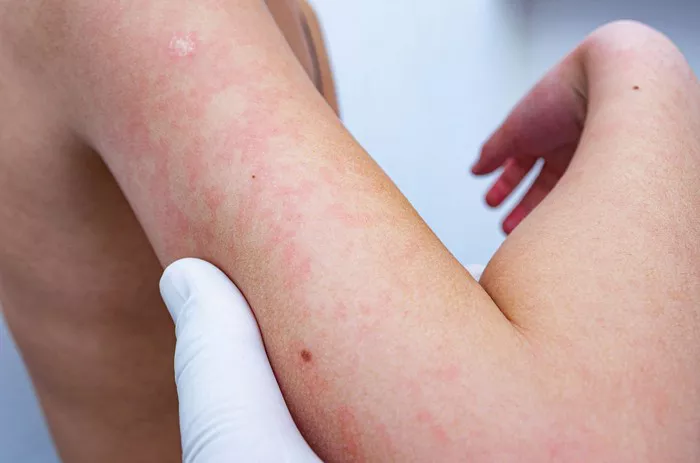Eczema, a common skin condition characterized by redness, itching, and inflammation, can affect various parts of the body, including the buttocks. While the exact cause of eczema remains elusive, a combination of genetic, environmental, and lifestyle factors is believed to contribute to its development. Eczema on the buttocks can be particularly discomforting and challenging to manage, impacting an individual’s quality of life. In this comprehensive article, we delve into the potential triggers and underlying factors that may lead to eczema on the buttocks, as well as effective management strategies to alleviate symptoms and improve skin health.
Understanding Eczema: A Complex Interplay
Eczema, also known as atopic dermatitis, is a chronic inflammatory skin condition that affects millions of people worldwide. It is characterized by periods of flare-ups and remissions, with symptoms ranging from mild itching and redness to severe inflammation, blistering, and oozing lesions. While eczema can manifest on any part of the body, including the face, hands, and feet, it commonly occurs in areas with high moisture levels, such as the folds of the skin and the buttocks.
Genetic Predisposition: Unraveling the Genetic Puzzle
One of the primary factors contributing to eczema is genetic predisposition. Individuals with a family history of eczema, asthma, or allergic rhinitis are more likely to develop the condition themselves. Genetic variations in certain genes, such as filaggrin (FLG), which plays a crucial role in maintaining the skin barrier function, have been implicated in the development of eczema. These genetic factors can predispose individuals to heightened immune responses and increased skin sensitivity, making them more susceptible to environmental triggers.
Environmental Triggers: Navigating External Influences
While genetics lays the foundation for eczema, environmental factors play a significant role in triggering and exacerbating symptoms. The buttocks, being a region prone to friction, sweating, and occlusion, are particularly susceptible to environmental irritants and allergens. Common triggers include:
1. Moisture and Heat: Prolonged exposure to sweat and moisture, especially in warm and humid environments, can disrupt the skin barrier and exacerbate inflammation. Tight-fitting clothing and synthetic fabrics can further trap heat and moisture, worsening symptoms.
2. Chemical Irritants: Contact with harsh chemicals present in detergents, soaps, perfumes, and skincare products can irritate the skin and trigger eczema flare-ups. Fragrances, preservatives, and dyes commonly found in personal care products may aggravate existing inflammation on the buttocks.
3. Allergens: Allergens such as dust mites, pollen, pet dander, and certain foods can trigger allergic reactions in susceptible individuals, leading to eczema flare-ups. Contact with allergens through clothing, bedding, or direct skin contact can exacerbate symptoms on the buttocks and surrounding areas.
4. Microbial Infections: Bacterial, fungal, and viral infections can colonize the skin and exacerbate eczema symptoms. Moisture and friction in the buttock area create an ideal environment for microbial growth, increasing the risk of infections such as impetigo, folliculitis, and fungal dermatitis.
Lifestyle Factors: Balancing Health and Well-being
In addition to genetic predisposition and environmental triggers, lifestyle factors play a crucial role in managing eczema on the buttocks and preventing flare-ups. Adopting healthy habits and skincare practices can help improve skin barrier function and reduce inflammation. Here are some lifestyle factors to consider:
1. Hygiene Practices: Gentle cleansing with mild, fragrance-free cleansers and lukewarm water can help remove sweat, bacteria, and debris without stripping the skin’s natural oils. Patting the skin dry with a soft towel and avoiding vigorous rubbing can minimize irritation.
2. Moisturization: Regular moisturization is essential for maintaining skin hydration and integrity. Opt for emollient-rich creams or ointments that provide a protective barrier against moisture loss. Apply moisturizers generously to the buttock area after bathing or whenever the skin feels dry.
3. Dietary Modifications: Some individuals may experience eczema flare-ups due to certain dietary triggers, such as dairy, gluten, or processed foods. Keeping a food diary and identifying potential triggers can help individuals make informed dietary choices to support skin health.
4. Stress Management: Stress and anxiety can exacerbate eczema symptoms through neuroendocrine pathways, triggering inflammatory responses in the skin. Practicing stress-reduction techniques such as meditation, yoga, and deep breathing exercises can help manage stress and improve overall well-being.
Medical Interventions: Seeking Professional Guidance
While lifestyle modifications can help alleviate symptoms, individuals with moderate to severe eczema may require medical interventions to effectively manage their condition. Dermatologists and healthcare providers may recommend the following treatments:
1. Topical Corticosteroids: Topical corticosteroids are commonly prescribed to reduce inflammation and itching associated with eczema flare-ups. These medications help alleviate symptoms and restore skin barrier function when applied to affected areas sparingly.
2. Topical Calcineurin Inhibitors: Calcineurin inhibitors such as tacrolimus and pimecrolimus are alternative medications that suppress immune responses and reduce inflammation in eczema-prone skin. These agents are particularly useful for sensitive areas such as the buttocks, where the skin may be more prone to side effects from corticosteroids.
3. Emollients and Barrier Creams: Emollients and barrier creams help hydrate the skin, strengthen the skin barrier, and prevent moisture loss. Regular use of these products can soothe dryness and itching on the buttocks, promoting skin healing and comfort.
4. Antihistamines: Oral antihistamines may be prescribed to alleviate itching and discomfort associated with eczema flare-ups. These medications help block histamine receptors in the skin, reducing itchiness and promoting restful sleep.
5. Phototherapy: Phototherapy, or light therapy, involves exposing the skin to ultraviolet (UV) light under controlled conditions. This treatment modulates immune responses and reduces inflammation, making it a valuable option for individuals with widespread or treatment-resistant eczema.
Conclusion
Eczema on the buttocks can pose significant challenges for affected individuals, impacting their comfort, mobility, and self-esteem. By understanding the complex interplay of genetic, environmental, and lifestyle factors contributing to eczema development, individuals can take proactive steps to manage their condition effectively. From adopting healthy skincare practices and lifestyle habits to seeking medical interventions when necessary, a comprehensive approach is essential for achieving long-term relief and improving skin health. With proper management and support, individuals can regain control over their eczema and enjoy a better quality of life.

























